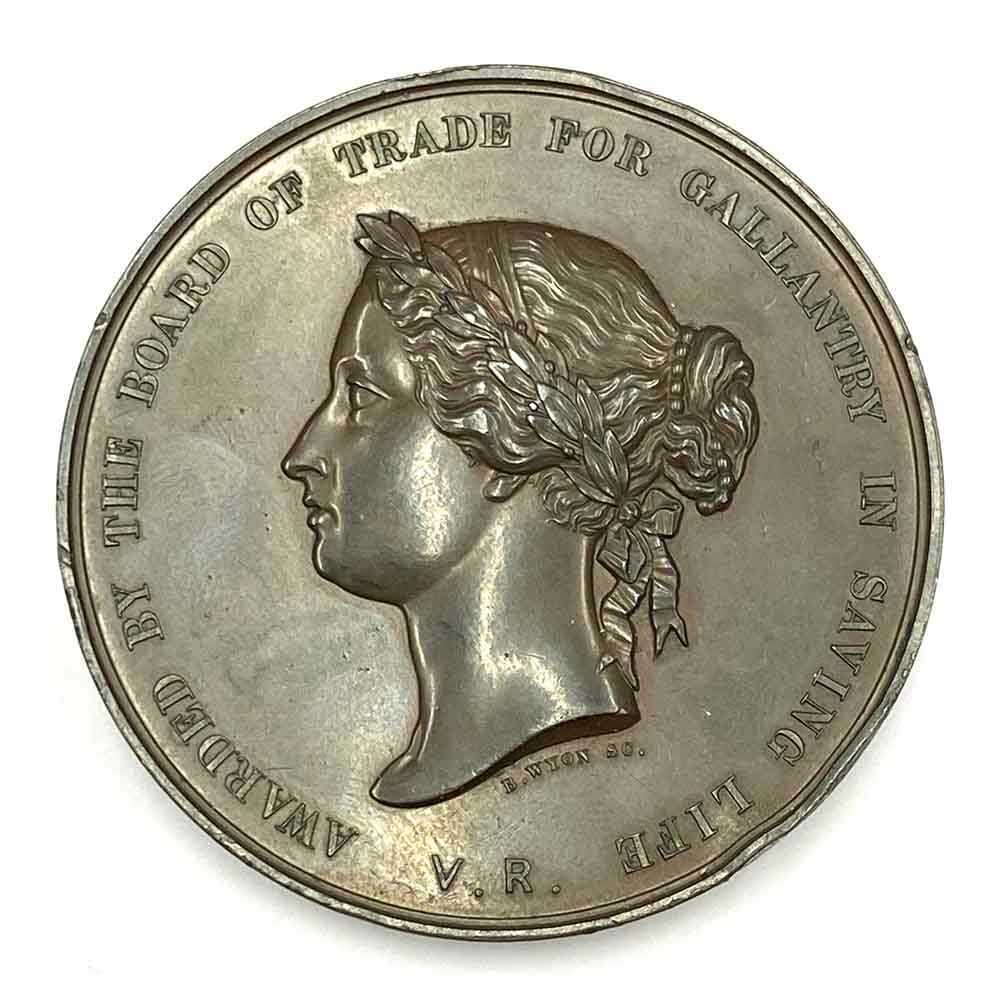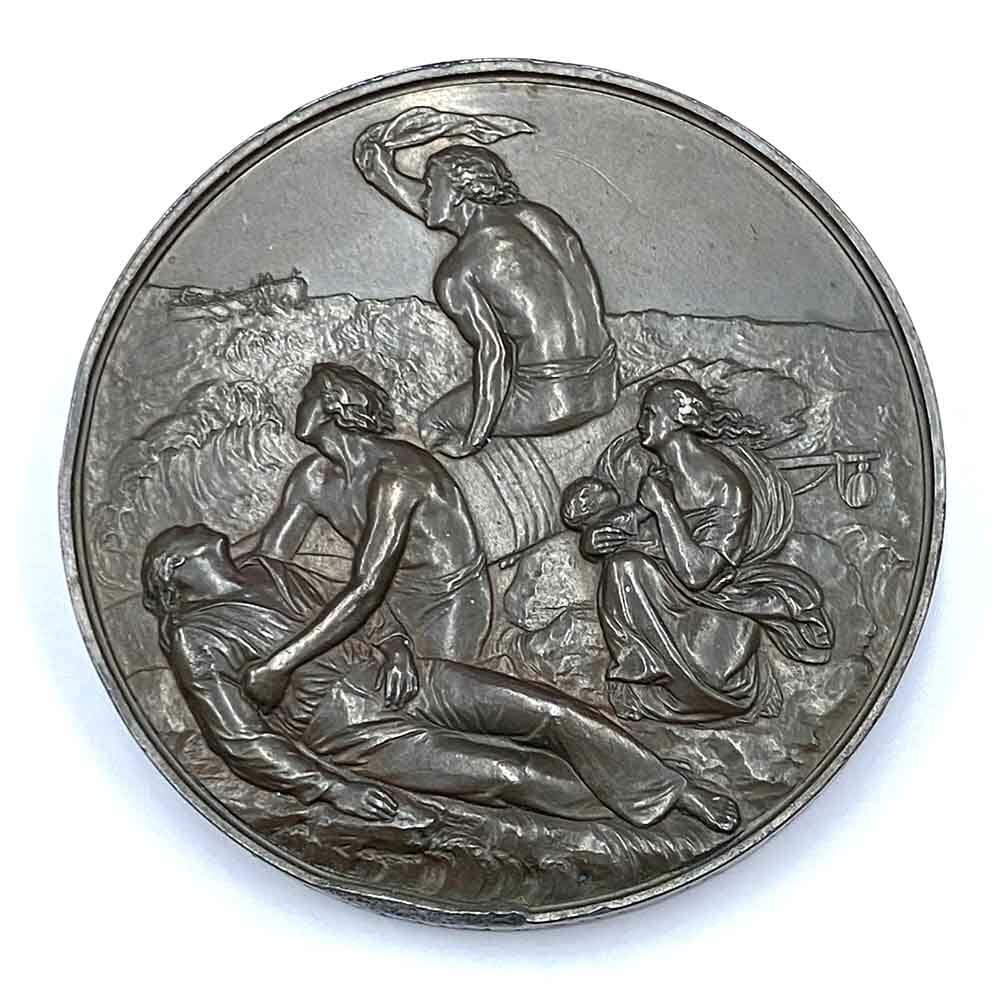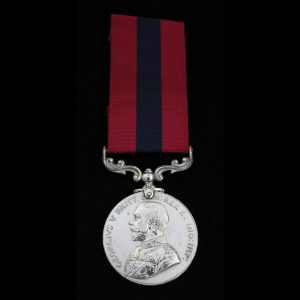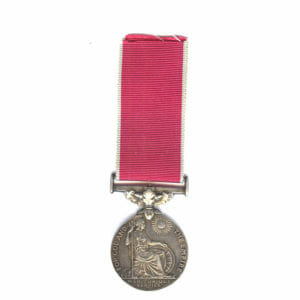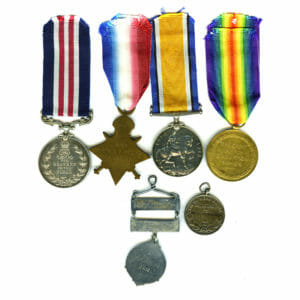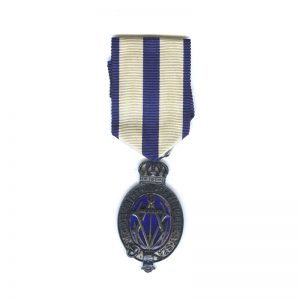Description
Board of Trade “Sea Gallantry” Medal for Saving Life at Sea, VR, large, bronze, George Bolden, the occasion of the wreck of the Rifleman, 21st January 1886.
Some edge knocks.
Officially engraved: “GEORGE BOLDEN WRECK OF THE ‘RIFLEMAN’ ON THE 21st JANUARY 1886”
Announced in the Morning Post, London on 29th March 1886:
“Board of Trade Rewards – The Board of Trade have awarded their silver medal to Mr Henry Spindler, master of the Corisande, of Grimsby, and their bronze medal to George Bolden and Richard Margaham, two of his crew, for their gallant service in manning their boat in a very heavy sea and rescuing the master and two of the crew of the Rifleman, of Guernsey, on the 21st of January. The Board have also granted a small pecuniary reward of the two seaman mentioned for their services.”
The report of the wreck, Wreck Commissioners Court assessment in The Times, 17th February 1886:
“Admiral Moresby, R.N., Captain Ronaldson, and Captain Parfitt were the Assessors.
This was an inquiry into the foundering of the sailing ship Rifleman of Spurn Head, on the 21st January, resulting in the loss of 6 lives.
The rifleman was a burquentine of 213 tons, built of Wood at Guernsey in 1865, and registered at that port.
She was owned by Mr Joseph Toms, of 11, Mill Street, Guernsey, and others, he being the manager.
The Vessel left the Tyne on the 20th of January last, with a crew of 9 hands and 400 tons of coal, for St Servan, France.
All went well until 8 pm, when the wind freshened and some canvas was taken off. At midnight the wind was east-north-east and increasing, and the sea getting up the captain got the ship under snug sail for the night, at 4 am next day, the wind having further increased, a heavy sea suddenly struck the vessel on her port side and threw her over with her starboard bulwarks right under water, the sea coming up to the combings of the lee hatchway.
The helm was at once put hard down and the ship brought up to the wind, but she did not straighten up, though nearly all the sail was taken in. Her bulwarks were still under water when the captain ordered the helm to be put hard-up and ran her off before the wind.
She still kept her heavy list to starboard, all hands being at the two pumps, as the vessel began to make a deal of water.
At about 9am the captain signalled a smack called the Corisande to stand by, and both vessels steered for Grimsby. At 9 30am, without any warning, the Rifleman turned over with all hands, three only of whom were picked up by the smack, the other sick being drowned. The three saved, the Captain, T. Holmes, an Able Seaman, and the Cook, were landed by the Smack at Grimsby…..”
